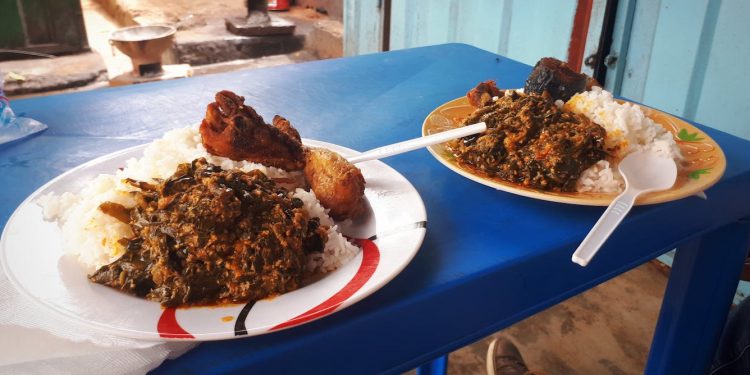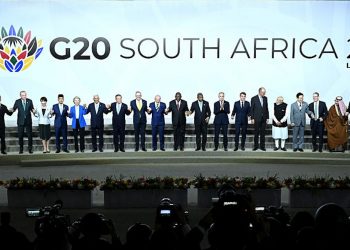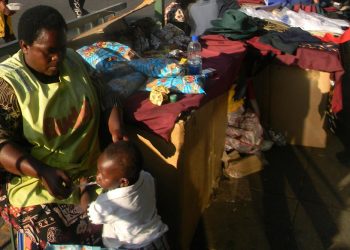Informal street food caterers, popularly known as chop bars, are a key feature of Ghanaian city life. They offer the urban poor the cheapest food.
A 2016 survey by the Food and Agriculture Organization estimated there were about 3,300 chop bars in the capital, Accra, employing almost 4,300 workers. This figure is likely to be much higher now due to rapid urban growth in the last decade. Ghana’s urban population increased from 50.9% in 2010 to 56.7% in 2021. By the same year the Greater Accra region was home to 91.7% of the urban population in the country.
Street food caterers in Accra face a number of problems, including insecurity of land tenure, inadequate knowledge of food hygiene, harassment from local authorities, cut-throat competition, and low returns from work.
Foreign donors have over the years stepped in to attempt to address these problems. A flagship of this assistance has been a programme funded by Danish trade unions and the Danish Federation of Small and Medium-sized Enterprises. Under its aegis, Ghana’s Trades Union Congress was able to support workers in chop bars.
Drawing on our expertise on trade unions in Ghana and on the informal economy, we assessed the effectiveness and strategic relevance of this aid.
The aid focused on entrepreneurial skills and micro-credit. This overlooks some of the real problems in the sector. It leaves wage workers in a precarious position and does nothing to boost demand for what the sector supplies. We argue that to be more effective, foreign aid should address these gaps.
Entrepreneurial pipe dreams
Increased donor attention to workers in the informal economy and trade unions could be seen as a positive trend. After all, this is where the majority of workers in African cities are to be found. Ghana’s official statistical service places the size of the country’s informal sector between 70% and 80% of the working populace in its reports from 2024.
However, close examination of the type of support given, and its results, yields a more sobering picture.
Aid focused firstly on capacity building and entrepreneurship. This aimed at boosting skills such as financial literacy and capacity to care for customers. The programme’s own evaluation highlights the increased confidence that chop bar operators gained through this training. Important as this might be, increased confidence can do very little to overcome structural challenges, like intense competition in an oversupplied sector and the insecurity of land tenure.
A second area of support was the provision of micro-credit via the Trades Union Congress (Ghana). One could argue that it boosted the creditworthiness of informal economy operators. But there is evidence, including our study, that credit can often result in a spiral of debt and “poverty finance”.
Donors chose to focus on small-scale entrepreneurs as the only economic actors in the informal economy. This reflects an ideological, and market fundamentalist, understanding of the informal economy as inhabited only by small enterprises and self-employed workers, and the challenge as one of making the market work better for the poor.
The blind spots of donors’ support to the informal economy
This approach by donors neglects informal and highly precarious wage workers within the chop bar sector. Our research shows that the chop bar industry is stratified in terms of class. Within it, alongside genuine self-employed workers, there are people who own relatively small-scale capital (cooking assets and in some cases the land and buildings in which the bars are based) and who employ informal wage workers.
The informal workforce is by and large made up of migrant female workers with relatively low education and skill. They work without contracts, for very long hours and very low wages, and face the risk of sudden dismissal and harassment from employers. Such poor working conditions stem from the lack of contracts, and of the rights that come with them. This is the weakest category of workers in the industry – yet they have no place in donors’ and trade unions’ activities to support workers.
The main limitation of donors’ aid to the chop bar sector is that it focuses exclusively on supply-side interventions. It is based on the idea that improving skills and access to finance will result in increased demand for the services of small-scale entrepreneurs. Many aid programmes on employment make this mistake and suffer from so called “employment dementia” .
This type of aid doesn’t ask where the stimulus to increase demand for street food will come from, or what the structural roots of urban employment challenges are. It doesn’t consider why African cities have large informal economies and poor-quality jobs.
Aid priorities
Donors should re-think their aid priorities, and put informal wage workers at their centre. This would entail moving away from the current focus on micro-solutions for job creation, and instead supporting policies to promote structural change, to tighten labour markets and increase the demand for good-quality jobs within them.
This article was co-authored with Dr Prince Asafu-Adjaye, an associate of Labour Research Service.
Matteo Rizzo does not work for, consult, own shares in or receive funding from any company or organisation that would benefit from this article, and has disclosed no relevant affiliations beyond their academic appointment.
















